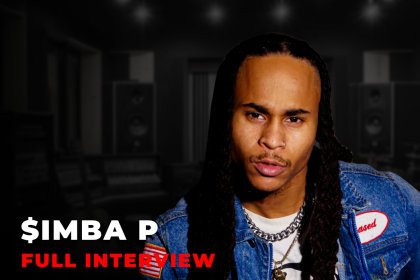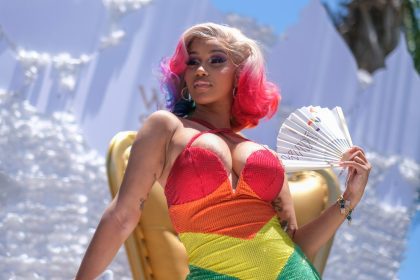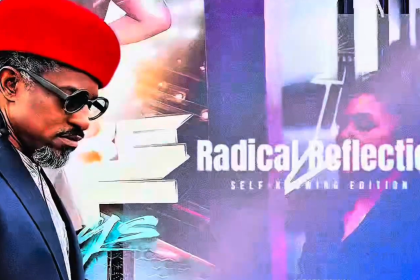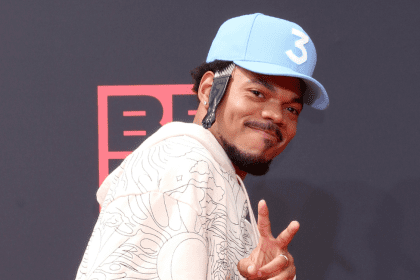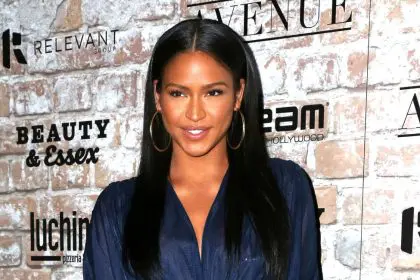As a staple in the Black radio landscape, David Linton has been a trailblazer for decades when it comes to helping and influencing others in the industry. From his days as a senior vice president at Capitol Records to now being WCLK’s program director, he’s had a combination of music and radio experience, and he’s now being honored for his work at the National Black Radio Hall of Fame. With his Living Legends Foundation, Linton is paying it forward by paying respect to the legends in the music business, while also assisting the young generation to put them in better positions for their future.
Tell us about your Hall of Fame honor and what you’re getting ready to be inducted to.
I’ve been in broadcasting and the music industry for about 40 years: a combination of radio and records. In October, the National Black Radio Hall of Fame, which is based out of Indianapolis, but has an Atlanta chapter, is going to be inducting several of my colleagues. I happen to be one of those inductees going into the Hall of Fame, and I’m getting the Broadcaster’s Leadership Award, so I’m humbled about that.
Tell us about your relationship with music and Bad Boy Records.
In 1994 Clive Davis made a deal with Bad Boy Records, as well as with Atlantis LaFace Records, and he was in the process of developing these two joint ventures. Gene Reagan, who was the senior vice president of Black Music, was looking for a vice president promotion, and at the time, I was the vice president of Black Music promotions at Island Records, based in New York. She invited me to come over and have a meeting, told me that they liked what I had been doing at some of my previous locations, and offered me an opportunity to join the Arista team. I did in 1995, and we launched LaFace Records and all that it had with Bad Boy, which included Notorious B.I.G., Mase, Faith Evans, and 112, which has an Atlanta connection. We also worked with TLC and Usher.
What was it like to see Black music during that day and know that you were building institutions that impact Black music and culture today?
That was a very interesting time in Black music. That was the time when there were several record companies. There were a lot of Black executives, like myself, who were in positions of power or influence. We were able to not only help develop the careers of artists but also were able to hire other executives and create an ecosystem that allowed us to have more African Americans involved in the music industry on various levels, from Black radio to Black records. The music is universal, but it came from the culture. Clive had an astute eye to find two executives like Baby Face and L.A. Reid who were starting LaFace Records, bring them under the wing, and give them the ammunition of the machine of an heiress to records. The same thing with Sean Puffy Combs, who was creating a company, and also Dallas Austin’s Rowdy Records. Those were three distinctly different, but unique opportunities that allowed these young entrepreneurs to flourish, and then to have Black executives in the C-suite, to make the decisions about what records [to play], how to take them to radio, and then have them on the radio. Videos were still very popular then, so we could hire video directors, and when you found a video director, that was also the marketing people. There were also the people who provided all the things on the sets, from wardrobe to makeup and everything. There was a whole ecosystem that was created during that great era, especially in the 90s. I grew up in 70s music, that’s my heartbeat. I started my career in radio late ’70s and early ’80s, and that was a great time, but it was something different in the ’90s because it allowed all these great entrepreneurs to flourish, and we’re now seeing as we celebrate 50 years of hip hop, from where the culture started, to where it is now. In the middle was that fertile ground for planting a lot of seeds that flourished. Now you’ve got Diddy owning a television network, L.A. Reid writing songs that will last forever, and Dallas Austin in the film world. If anybody looks at “Power,” that’s Curtis “50 Cent” Jackson and the franchises he’s created. All those things were birthed during that era of the 90s and early part of 2000.
What decisions do you make, that will have lasting power as an executive, to impact and create future legends like yourself?
I was an executive who happened to be Black. Although I was involved in Black music, especially when I went to Capitol Records as a senior vice president, I had input on all the music, I had an opinion, and I always had a voice in everything that the label was doing, because I was a senior executive. Unfortunately, you don’t have a lot of those today. With downsizing technology, the industry has shrunken – now there are only three labels, and before there were around 17 or 19 labels. There was a day when you lost your job on Monday at one label and by Friday, you’d be picked up by somebody else. Today, it’s not that way. We’ve been fighting the battle to make sure that the current executives have their say and opportunity to not only chart Black music but other forms of music. That’s why the Living Legends Foundation, which I’m proud to be the chair of, is one of a couple of organizations that are always trying to make sure that the lineage is intact, so that these young executives today have a support system because they’re standing on the shoulders of those, and we want to make sure that they have that foundation. We have to make sure that we are always fighting, as we’re doing in all aspects of our life to make sure that there’s full Black representation across the board.
How can people support the Living Legends Foundation?
Living Legends Foundation is an organization that was founded by two executives, Ray Harris, who was then a senior vice president of Black music at Warner Brothers Records, along with the late Jerry Bolden, who was a radio programmer consultant. I would like to say he was the premier Black radio consultant who touch so many formats, but he was responsible for hiring some of the best talent to grace the microphone. What they saw, as we also know, is that life in the music industry, broadcasting, or in the arts, it’s like a roller coaster. You’re up today and down tomorrow. It’s not one of those situations where you get one place to stay for 25 years, you get the golden watch, the 401K and you go into the sunset. We found out that when a lot of executives or radio disc jockeys lose their jobs, they find themselves without, especially as time goes on. Everybody knows that the number one reason for bankruptcy in America is medical expenses, so some of these people may have great careers, but when they are out, they don’t have those things. It’s not because they party their money away. It’s not because they threw it away, or they were addicted to anything. It just happens to be the nature of the business, so they saw a need for a support system for those individuals. Secondly, we knew that for our story to be told and stay intact, we had to do it.
The Living Legends Foundation has a twofold role. One, to make sure that there’s a bridge over troubled waters for executives or anybody in the entertainment business that deals with music, that if they have a difficult time, there’s a bridge over troubled waters, and then to make sure that we know about the history of our music and the people who made it possible for us all to be in it. We honor today’s industry leaders as we look back because, for us, a legend is not how long you’re in the role. Some people think you have to be a legend for 20 or 30 years. If that was the case, there wouldn’t be too many in our industry, because so many people don’t have careers that last that long. But for us, the foundation is what you do when you’re in it. Because if you’re in a job for 30 years, and you didn’t impact anybody’s life, and you didn’t bring anybody up, then you just had a job. But if you were able to change the course of somebody’s life and make a lasting impression in the industry, then you have done something legendary, because what you’ve done is lasting – whether it’s through you or the people that you help come along. Since I’ve been chairman for the last five years, we added our scholarship program. Not only are we helping current executives, we’re not only connecting the past to the present, but now we’re looking to the future. We’re now providing scholarships for students. Initially, it started for students who were just going to HBCUs because I’m a product of an HBCU, I went to Shaw University. That’s where I did my undergraduate work in radio, TV, and film, and I did my graduate work at North Carolina Central University, and I’m employed at Clark Atlanta University. I started the radio station at Elizabeth City State so I’m an HBCU product through and through. But we also realized that there are a lot of students who are now going to some mainstream PWIs who need assistance as well. They need just as much assistance. For us, it’s about education. One of our students is going to Yale this year, and he’s got a scholarship. We gave him a scholarship to help him while he was at Yale, but we got him an internship at Sony Music during the summer.


